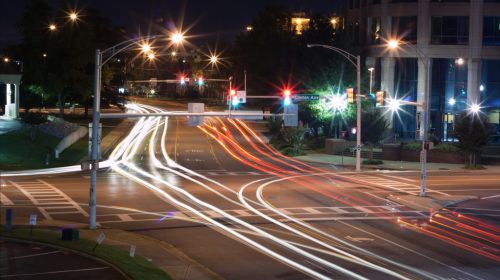
Yesterday, a federal district court ruled that the Justice Department does not need to disclose two secret memos providing guidance to federal prosecutors and investigators regarding the use of GPS devices and other location tracking technologies. The government had previously released the documents in response to the ACLU’s Freedom of Information Act lawsuit, but their contents were almost entirely censored. (You can view the redacted documents, in all their glory, here and here.)
The memos were written in the wake of the Supreme Court’s landmark decision in U.S. v. Jones, which held that the government’s use of a GPS tracker to monitor a vehicle’s movements is subject to the Fourth Amendment. While the Supreme Court’s decision was a major victory for Americans’ privacy rights, it also raised numerous unanswered questions about the proper use of GPS tracking and other surveillance technologies going forward. The court, for example, did not decide whether the government must obtain a warrant to install and monitor GPS devices. And it did not explain how the Fourth Amendment applies to other location tracking technologies.
The Justice Department drafted the memos to address those open questions, but it claimed in court that it should not have to turn them over because they contain attorney work-product and sensitive law enforcement information. The district court disagreed in part, holding that government guidelines for the use of GPS tracking do not qualify as sensitive law enforcement information, because “Law enforcement’s use of GPS tracking is well known by the public.” But it concluded that the government may nevertheless keep the guidelines secret, on the ground that the results of DOJ’s reasoning “will be borne out in the courts.”
We certainly hope the district court is correct in predicting that the government’s surveillance policies will eventually see the light of day in an open judicial forum. But while we wait for the courts to weigh in, the political branches will be the ones who determine how much privacy we can expect in our movements over the course of weeks or months — movements that can reveal a surprisingly intimate picture of our personal and professional lives. That is why these memos are so important. And yet we know they exist only because FBI General Counsel Andrew Weissmann happened to mention them in a law school talk that ended up on YouTube (you can watch it ).
Fortunately, the district court does not get the last word on this issue. Senator Ron Wyden (D-OR) and Representative Jason Chaffetz (R-UT) have asked Attorney General Eric Holder to release the documents, reminding the attorney general that “there is no room in American democracy for secret interpretation of public law.” (You can read their letter .) And the New York Times Editorial Board has the Justice Department to release the location tracking memos to the public of its own volition, so that we can have the public debate about government surveillance practices that the administration claims to welcome. And if you want to skip right over interpretations of the law and get behind a strong Congressional fix, you can support legislation mandating a warrant for all location tracking .
We the People have a right to know what checks the executive branch has put in place to regulate law enforcement’s use of the powerful new surveillance tools at its disposal. We hope the Justice Department someday agrees.

